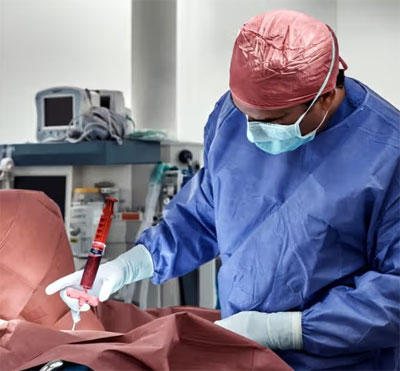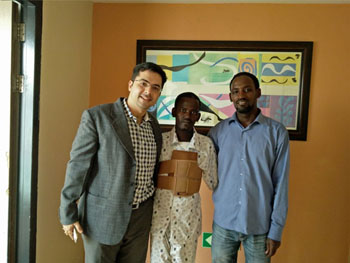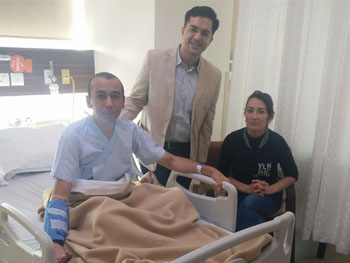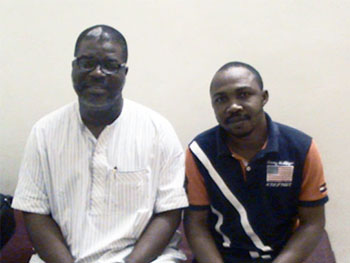Bone Marrow Transplant For Multiple Sclerosis in India
Overview
Multiple Sclerosis (MS) is a chronic, often disabling disease that affects the central nervous system (CNS), which comprises the brain and spinal cord. In MS, the immune system mistakenly targets the myelin sheath, a protective covering around nerve fibers, causing inflammation and damage. This disruption affects the transmission of electrical signals between the brain and the rest of the body, leading to a range of symptoms. The exact cause of MS is not fully understood, but it is believed to involve a combination of genetic susceptibility and environmental triggers, such as viral infections. The symptoms of MS can vary greatly between individuals and may include fatigue, difficulty walking, numbness or tingling, muscle weakness, vision problems, and cognitive impairment. MS can be classified into different types, with the most common being relapsing-remitting MS (RRMS), where individuals experience episodes of symptoms followed by periods of partial or full recovery.
What is Multiple Sclerosis?

Multiple Sclerosis, commonly referred to as MS, is a chronic condition that affects the central nervous system, disrupting communication between the brain and the rest of the body.
Free Consultation
This neurological disease results in the immune system mistakenly attacking the protective sheath (myelin) that covers nerve fibers, leading to potential damage or deterioration of the nerves themselves. The exact cause of Multiple Sclerosis remains unknown, but it is believed to involve a combination of genetic predisposition and environmental factors. Symptoms can vary widely, ranging from vision problems and muscle weakness to issues with coordination and balance, making each individual's experience with the disease unique.
What Happens in Multiple Sclerosis?
In Multiple Sclerosis (MS), the immune system mistakenly attacks the central nervous system (CNS), which includes the brain, spinal cord, and optic nerves. The primary target of this attack is the myelin sheath, a fatty protective layer that surrounds nerve fibers and facilitates the rapid transmission of electrical signals. When the immune system damages or destroys myelin, a process known as demyelination occurs. This damage disrupts the efficient flow of electrical impulses along the nerves, leading to scar tissue or lesions forming in place of the myelin. These areas of scar tissue, known as sclerosis or plaques, can impede or even block the nerve signals. Over time, as more myelin is destroyed and nerve fibers themselves can become damaged or severed, communication between the brain and the rest of the body becomes increasingly compromised. The result is a range of neurological symptoms that vary in severity and type, depending on the location and extent of the damage.
Types of Bone Marrow Transplant Multiple Sclerosis
Bone marrow transplantation is a significant therapeutic approach for individuals diagnosed with multiple sclerosis (MS), a chronic autoimmune disorder that affects the central nervous system. There are primarily two types of bone marrow transplants utilized in the treatment of MS:
- Autologous Transplants
- Allogeneic Transplants
An autologous transplant involves harvesting the patient's own stem cells, which are then treated and reintroduced into the body after intensive immunosuppressive therapy. This method aims to reset the immune system, potentially halting the progression of the disease and reducing the frequency of relapses. In contrast, an allogeneic transplant utilizes stem cells from a healthy donor, which can provide a new immune system that may be more effective in combating the autoimmune response characteristic of MS. As advancements in medical science progress, the hope is to enhance the therapeutic landscape for MS, providing patients with more effective and personalized treatment strategies.
Procedure for Multiple Sclerosis Bone Marrow Transplantation
 The process of bone marrow transplantation for patients with multiple sclerosis involves a series of carefully coordinated steps aimed at restoring the immune system and potentially halting the progression of the disease. Initially, a thorough evaluation of the patient's medical history and current health status is conducted to determine their suitability for the procedure. This assessment includes various diagnostic tests, such as blood work and imaging studies, to evaluate the extent of the disease and the overall condition of the patient.
The process of bone marrow transplantation for patients with multiple sclerosis involves a series of carefully coordinated steps aimed at restoring the immune system and potentially halting the progression of the disease. Initially, a thorough evaluation of the patient's medical history and current health status is conducted to determine their suitability for the procedure. This assessment includes various diagnostic tests, such as blood work and imaging studies, to evaluate the extent of the disease and the overall condition of the patient.
Once deemed eligible, the patient undergoes a preparatory phase, which typically involves the administration of high-dose immunosuppressive therapy. This treatment is designed to eliminate the existing immune cells that are contributing to the autoimmune response associated with multiple sclerosis. These stem cells can be sourced from the patient themselves (autologous transplantation) or from a compatible donor (allogeneic transplantation). After the infusion, the patient is closely monitored for any complications, such as infections or graft-versus-host disease, as the immune system begins to rebuild.
List of Top Hospitals for Bone Marrow Transplant for MS in India
- Fortis Hospital, Delhi
- Max Healthcare Hospital, Delhi
- Apollo Hospital, Delhi
- BLK Super Speciality Hospital, Delhi
- Medanta Hospital, Gurgaon
- Paras Hospital, Gurgaon
- Kokilaben Hospital, Mumbai
- Jaslok Hospital, Mumbai
- Nanavati Hospital, Mumbai
- Artemis Hospital, Gurgaon
- Sir H N Reliance Foundation Hospital, Mumbai
- P D Hinduja Hospital and Medical Research Centre, Mumbai
- Patel Hospital, Mumbai
- KIMS Hospital, Hyderabad
- Continental Hospital, Hyderabad
- Manipal Hospital, Bangalore
- Global Hospital, Chennai, Tamil Nadu
- Columbia Asia Hospital, Bangalore
- Aster Medcity, Kochi Kerala
- CIMS Hospital, Gujrat
- Ruby General Hospital, Kolkata
- Miot International, Chennai, Tamil Nadu
- Rajiv Gandhi cancer Institute & Research Centre, Delhi
- Sahyadri Hospital, Pune
- Jupiter Hospital, Thane, Maharashtra
- Pushpawati Singhania Hospital & Research Centre, Delhi
- Lilavati Hospital, Mumbai
- Narayana Health, Bangalore
- Amrita Hospital, Kochi
Send your query to know the Average Cost of Bone Marrow Transplant For Multiple Sclerosis in India at the Best MS Bone Marrow Transplant Hospitals in India.
Phone Numbers Reach Us India & International:
+91 9765025331
- ORGAN TRANSPLANTS PERFORMED THIS YEAR- 73
- PATIENT SATISFACTION- 97%
- DEDICATED SUPPORT PHYSICIAN FOR EACH PATIENT
- INTERNATIONAL MEDICAL CLINICS- 6 EVERY YEAR
- CHARITY SUPPORT TIE UPS FOR ECONOMICALLY POOR PATIENTS
List of Best Doctors for Bone Marrow Transplant for MS India
- Dr. Rahul Bhargava
- Dr. Dharma R Choudhary
- Dr. Vikas Dua
- Dr. Sameer A. Tulpule
- Dr Amit Rauthan
- Dr. Nitin Sood
- Dr. Pawan Kumar Singh
- Dr. Balkrishna Padate
- Dr. Shishir Seth
- Dr. Suresh Advani
- Dr. Ramaswamy N V
- Dr. Ashish Dixit
- Dr. Sanjeev Kumar Sharma
- Dr. Shyam A Rathi
- Dr. Ashok Kumar Vaid
Request your appointment with the Top BMT for Multiple Sclerosis Doctors in India at the Best Bone Marrow Transplant for MS Hospitals in India.
Phone Numbers Reach Us India & International:
+91 9765025331
Good Candidate for Bone Marrow Transplant For Multiple Sclerosis
- An ideal candidate for a bone marrow transplant in the context of multiple sclerosis (MS) is typically characterized by specific clinical and biological criteria that suggest a potential for significant therapeutic benefit.
- These individuals often exhibit aggressive forms of the disease, which may not respond adequately to conventional treatments. Furthermore, candidates are usually younger, as age can influence both the efficacy of the transplant and the recovery process.
- A thorough evaluation of the patient's overall health, including the presence of comorbid conditions, is essential to determine their suitability for this intensive procedure.
- Additionally, the timing of the transplant in relation to disease progression plays a crucial role in optimizing outcomes.
- Those who have experienced frequent relapses or significant disability may be prioritized for this intervention, as the goal is to halt disease progression and improve quality of life.
As of yet, Bone Marrow Transplant or Stem cell Treatment is the only known treatment for any sickle cell disease. But having a bone marrow transplant is still not considered a complete cure. This procedure is to delay the sickle cell or to prevent the effects that come with the disease. These transplants are complex and risky procedures and may have serious side effects as well. Hence, these procedures are only used in children that are suffering from severe sickle cell disease. This transplant may work as desired if the donour is a close match to the patient. The preferred donour is usually the brother or the sister of the patient.

Ghana Patient Review - Appiah Nyarko's Fight against Multiple Sclerosis (MS)
A patient from Ghana, Appiah Nyarko who traveled to India for a bone marrow transplant for Multiple Sclerosis (MS), shared his positive experience of receiving high-quality care at an affordable price. Facing the challenges of MS at home with limited treatment options and high costs, he sought alternative solutions and chose India for its reputation in medical excellence and cost-effective healthcare.
Upon arrival in India, Appiah was welcomed by a team of multilingual staff who facilitated a seamless transition, providing support with visa arrangements, transportation, and accommodation. The hospital Appiah selected was equipped with advanced medical technology and experienced specialists in neurology and hematology. Throughout the process, Appiah received comprehensive care, starting with thorough pre-transplant assessments to the actual bone marrow transplant and recovery.
Following his recovery, Appiah highlighted the noticeable improvement in his condition and shared how the treatment in India had given him hope and a new lease on life. Appiah encouraged others from similar backgrounds to consider India as a viable option for affordable and high-quality medical treatment.
Benefits of Bone Marrow Transplant For Multiple Sclerosis
Bone marrow transplantation offers several potential advantages for individuals suffering from multiple sclerosis (MS), a chronic autoimmune disorder that affects the central nervous system. One of the primary benefits is the possibility of disease modification, as this procedure aims to reset the immune system. By eliminating the existing immune cells that are mistakenly attacking the myelin sheath surrounding nerve fibers, the transplant can facilitate the generation of new, healthy immune cells that are less likely to contribute to the inflammatory processes characteristic of MS. This approach may lead to a reduction in the frequency and severity of relapses, ultimately improving the patient's quality of life. Additionally, bone marrow transplantation may provide long-term remission for some patients with aggressive forms of multiple sclerosis. The procedure can be particularly beneficial for those who have not responded adequately to conventional therapies.
Phone Numbers Reach Us India & International:
+91 9765025331
Bone Marrow Transplant For Multiple Sclerosis Cost in India
The cost of Bone marrow transplants for Multiple Sclerosis (MS) in India are highly affordable when compared to similar procedures in Western countries, offering significant cost savings without compromising on quality. The affordability of bone marrow transplants in India is further complemented by comprehensive care packages offered by leading hospitals. These packages often include pre-transplant assessments, medical consultations, the transplant procedure, hospital stays, medications, and post-operative follow-ups.
Patients and their families are able to receive high-quality care from experienced specialists and state-of-the-art medical facilities at a fraction of the cost compared to many other countries. This cost-effectiveness, combined with India’s reputation for medical excellence, makes it an attractive option for patients seeking treatment for MS. International patients also benefit from support services that assist with visa arrangements, travel logistics, and accommodation, making the overall process more manageable and less stressful.
Success Rates BMT For Multiple Sclerosis in India
The success rates of bone marrow transplantation (BMT) for the treatment of multiple sclerosis in India is 90 to 95%. This innovative therapeutic approach aims to reset the immune system of patients suffering from this chronic neurological condition, which is characterized by the deterioration of the protective myelin sheath surrounding nerve fibers.
In India, the application of bone marrow transplantation for multiple sclerosis is becoming increasingly recognized as a viable treatment modality. As healthcare facilities continue to develop and refine their BMT protocols, the potential for achieving favorable long-term results for multiple sclerosis patients in India appears promising, underscoring the importance of ongoing research and clinical trials in this field.
Result After Bone Marrow Transplantation for MS in India
The outcomes following bone marrow transplantation for multiple sclerosis (MS) in India have garnered significant attention in recent years.
- This innovative treatment approach aims to reset the immune system of patients suffering from this debilitating neurological condition.
- By utilizing the patient's own stem cells or those from a compatible donor, the procedure seeks to halt the progression of MS and potentially restore neurological function.
- In India, the implementation of bone marrow transplantation as a therapeutic option for MS has been met with both optimism and caution.
- The procedure is typically reserved for patients with aggressive forms of the disease who have not responded adequately to conventional therapies.
Why Choose India for Bone Marrow Transplant For Multiple Sclerosis?
India has become a popular destination for bone marrow transplants for treating conditions like Multiple Sclerosis (MS) due to several key factors.
One major reason is the availability of world-class medical facilities equipped with advanced technology and highly trained healthcare professionals who specialize in hematology and neurology. Many top hospitals in India have dedicated bone marrow transplant units that meet international standards, ensuring a high level of care and successful outcomes.
Another important factor is the cost-effectiveness of treatment in India. The overall expenses for bone marrow transplants and related medical care are significantly lower compared to Western countries, making it an attractive option for international patients without compromising on the quality of care. India also boasts a wide pool of experienced specialists who have trained and practiced in leading global medical centers.
These factors, combined with India’s reputation for high standards of medical ethics and patient care, have established the country as a leading destination for patients seeking effective and affordable bone marrow transplants for conditions such as Multiple Sclerosis.
Phone Numbers Reach Us India & International:
+91 9765025331
Our Success Stories
Mr.Abba Mehmoud Musa, Sudan
Sudan Patient's Successful Liver Transplant Journey to India
Many a times due to certain reasons like excessive alcohol, fat deposit or any other complication, the liver gets damaged...
Read More
Mr. Sartaj Musumonov, Uzbekistan
Success Story of Bone Marrow Transplant Surgery in India
It is extremely difficult to understand the medical situation if one is not from a medical background. Here is one more...
Read More
Mr. Abubakar Abdullahi Jam, Nigeria
A New Phase of Life after Kidney Transplant Surgery India
Mr. Abubakar Abdullahi Jama was mournful due to high constant fever, diarrhea, and vomiting. He felt that it was normal...
Read More










